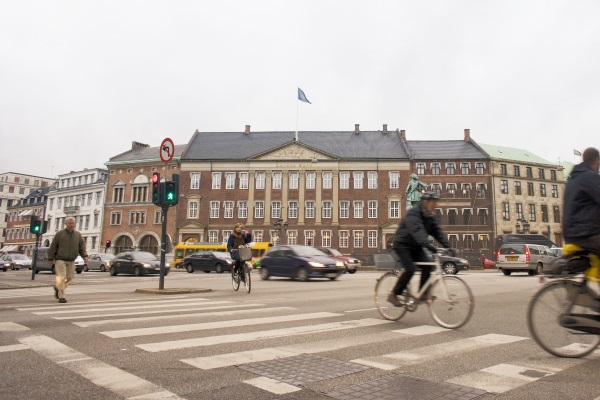Green bond debut mitigates Danske premium
An inaugural Danske Bank green bond on 12 March allowed it to mitigate concerns over its role in a money-laundering scandal, with the EUR500m no-grow five year non-preferred senior deal priced at a level well inside where a conventional bond from the Danish issuer would likely have come.
Danske announced plans for its debut on 5 March, when it published details of a group green bond framework, which allows for issuance across different formats and entities in different jurisdictions, and kicked off a roadshow the next day.
Its leads went out with IPTs of the mid-swaps plus 185bp area for Danske Bank A/S’s EUR500m (DKK3.73bn) no-grow five year non-preferred senior issue, rated Baa2/BBB+/A. Orders topped EUR1.25bn within an hour and guidance was set at the 170bp area with books above EUR2bn in less than two hours. The pricing was ultimately set at 165p over mid-swaps and a lead syndicate banker said that this was flat to Danske’s curve — “undoubtedly a tighter end-pricing than would have been achieved from a conventional non-preferred senior benchmark,” he added.
This contrasted with a new issue premium of some 15bp paid by Danske on 22 February for a EUR1.25bn three year non-preferred senior issue re-offered at 155bp over mid-swaps, and although the size of the new green issue was more limited and market conditions had further improved, the green nature of the new issue was cited as a key factor in the issuer being able to limit its funding costs — a lead banker estimated the “greenium” was in the high single-digits. The green format was also seen as boosting the audience for the trade, with around 250 investors involved versus 160 in the preceding deal, and strong involvement from green/SRI funds, according to the lead banker.
“We are very pleased with the transaction,” said Bent Callisen, head of group funding at Danske. “The number of accounts participating and the size of the order book underlines to us that investors generally and despite the Estonian case are comfortable with our core franchise, as we have also seen in other recent transactions.
“The green element helped us achieve a broad distribution with more than 250 investors participating, and we see the spread as a very good outcome, yet also allowing for immediate performance in the secondary market.”
Danske’s spreads widened sharply last year as a result of its role in a money-laundering scandal, with the results of an investigation into its Estonian branch released in September 2018, and it continues to trade wide of its peers. Some market participants had questioned how the events might influence interest in the green bond if ESG-oriented investors were concerned about governance issues at the bank.
“We have made substantial investments since 2014 to improve our set-up, capabilities and competencies for combating financial crime,” said Callisen (pictured below). “However, as financial crime continues to evolve, we will continue to invest substantial resources in combating financial crime.
“We do trade at elevated spreads due to the Estonia case, but we have seen in recent issuances that investors overall are comfortable with our core franchise and also appreciate the disclosure we have provided on our governance and control investments.”
George Kalbin, director, FI syndicate at Crédit Agricole CIB, said Danske had adopted a prudent approach in first launching the three year non-preferred senior issue in February, having earlier raised $3bn in a dual tranche non-preferred senior deal in January.
“They were thorough in their investor work and showed that they had market access in the US and with a defensive trade in euros,” he said. “Their spreads rallied strongly on the back of that and they could then return with the green bond and erode the new issue concession completely.
“Investors may have had their questions on ESG aspects, but clearly the levels at which they are trading at right now are attractive,” he added. “We are talking about a solid Nordic bank at a triple-digit spread, and hopefully the worst is behind them, so you do have an upside going forward.”
Callisen said the success of the green bond also reflected Danske’s sustainability strategy.
“Our ambition is to drive sustainable progress and positive impact in the societies we are part of as outlined in our Societal Impact Strategy 2025,” he said. “Furthermore, we see demand by investors for this particular product and we see it as an opportunity to diversify our investor base, which hopefully will warrant the cost of establishing and maintaining the programme.”


